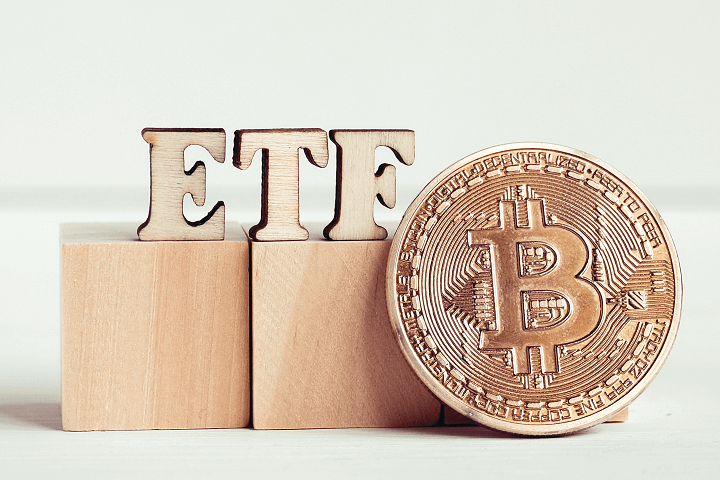Over the last few years, key stakeholders in the cryptocurrency industry have been advocating for the approval of Bitcoin exchange-traded funds (ETFs). Unfortunately, the Security Exchange Commission (SEC) has rejected the ETFs on the basis of the market’s volatility.
But what exactly are Bitcoin ETFs, and how are they different from actively trading the digital currency on crypto exchanges?
To answer this question, we need to take a step back and examine how ETFs work in their most basic form.
What is a Bitcoin ETF?
Essentially, an exchange-traded fund (ETF) is an investment vehicle that tracks the performance of assets such as securities, bonds, and commodities like gold and oil. The fund can easily be traded on an exchange just like stocks, hence the name. ETFs allow investors to diversify their portfolio without actually owning the underlying assets.
In the case of Bitcoin ETF, the backing asset will likely be bitcoin futures or actual bitcoins stored in wallets. For investors, holding shares in a bitcoin ETF would mean that you don’t have to worry about the complexity of actively trading Bitcoins in the market, or about safety. This is because the investors’ money is tied to the price of Bitcoin and not the digital currency itself.
Advantages of Bitcoin ETFs
Bitcoin ETFs come with some advantages which are crucial to the maturation of the entire cryptocurrency market.
Big Money Interest
Bitcoin ETFs are a gateway to roping in mainstream investors into the cryptocurrency market. The main incentive here is that the ETF is regulated by brokers, and this increases investor confidence. That said, it will be easier for institutional investors to put their money into the fund in order to diversify their portfolios. Additionally, Bitcoin ETFs make it possible for the less than tech-savvy investors to invest in Bitcoin, thus helping them avoid risky token sales or blockchain-based projects.
Increased Bitcoin Value
Usually, an ETF dealing with a commodity such as gold keeps a large amount of the commodity in reserve. Likewise, a Bitcoin ETF will be backed by large reserves of the digital coin stored in wallets. As the fund purchases more bitcoin to keep in reserve, the market value of the digital asset will increase.
More so, the fund will redirect the investor money into the Bitcoin global market. In turn, Bitcoin’s price will become more stable, making it more valuable.
Added Legitimacy
Bitcoin itself isn’t completely illegal but still faces restrictions from various governments. However, if Bitcoin ETFs were to be approved on a major exchange under the regulation of a body such as the SEC, it would become more accepted by the general public. This would also prompt investment managers to include the fund in tax-sheltered retirement plans such as 401ks and mutual funds.
Cons of Bitcoin ETFs
While there are advantages that come with the addition of Bitcoin ETFs in the market, there are a couple of valid reasons why the funds may be a bad idea.
First, the funds might take away the decentralized nature of bitcoin holdings. This opinion is tied to the fact that investors don’t own the private keys of the underlying asset. The investors own shares in Bitcoin, which is not the same as owning the asset itself. As such, the fund custodians will have absolute authority on making crucial decisions such as which chain to support in the event of a fork, and even whether or not to issue forked coins to investors.
Moreover, the entry of big money investors means that there is a high possibility of Bitcoin price manipulation through shorting. These investors may sway even the entire crypto-market to their advantage at the expense of other small-scale investors. It can get even worse considering that Bitcoin ETFs are open to any investors, including those that don’t understand or appreciate blockchain technology. The entry of such investors in the market may jeopardize the intrinsic value of the technology since they are largely more concerned with making profits than the growth and development of blockchain.
Investing in Bitcoin ETFs
Clearly, the advantages of Bitcoin ETF outweighs its cons. Although the fund is yet to be approved on U.S. exchanges, there are several functional Blockchain ETFs in European exchanges. Unlike Bitcoin ETFs, blockchain ETFs do not follow bitcoin prices but instead track the performance of companies linked to the blockchain space. Be aware, though, that the ETFs come with tax implications as per the provisions of the Financial Account Tax Compliance Act (FATCA).
Right now, the only Bitcoin financial product available to U.S. investors is Bitcoin ETN. The two products are similar in that they relieve investors of the burden of owning the asset. However, ETNs are regarded as debt notes rather than a pool of assets. They are often issued by banks and are structured as bonds in the sense that they are unsecured. The only downside of ETNs is that if the underlying issuer goes bankrupt, investors are likely to lose their money. Perhaps this explains why Bitcoin ETNs haven’t gained much traction.
Conclusion
Bitcoin ETFs offer a new way of investing in the cryptocurrency market. As an investment vehicle, ETFs serve as a tool for driving Bitcoin adoption as global investors bet on the price of the underlying asset. But it is important to note that the real potential of ETFs is the sheer speculation from the crypto community. Unfortunately, the few ETFs that are in the market can’t be used to ascertain these speculations since they are exclusively offered to specific investors.
Even if ETFs live up to the hype, they still have a long way to go considering that Bitcoin futures still lag behind in terms of trading volume. For now, crypto investors can find consolation in the fact that European exchanges, as well as over-the-counter Bitcoin financial products, are paving the way for the inception of Bitcoin-based ETFs.





